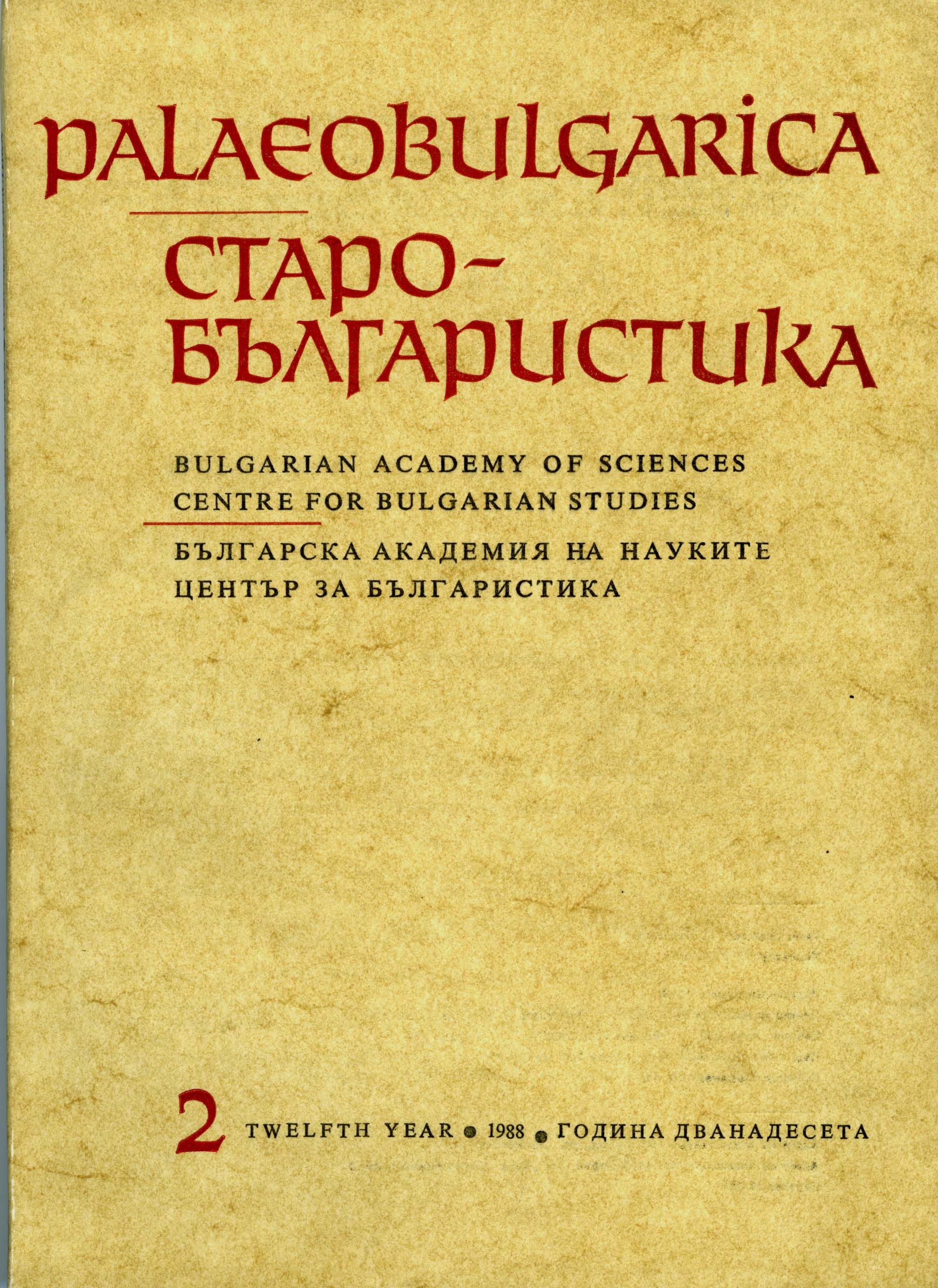
We kindly inform you that, as long as the subject affiliation of our 300.000+ articles is in progress, you might get unsufficient or no results on your third level or second level search. In this case, please broaden your search criteria.

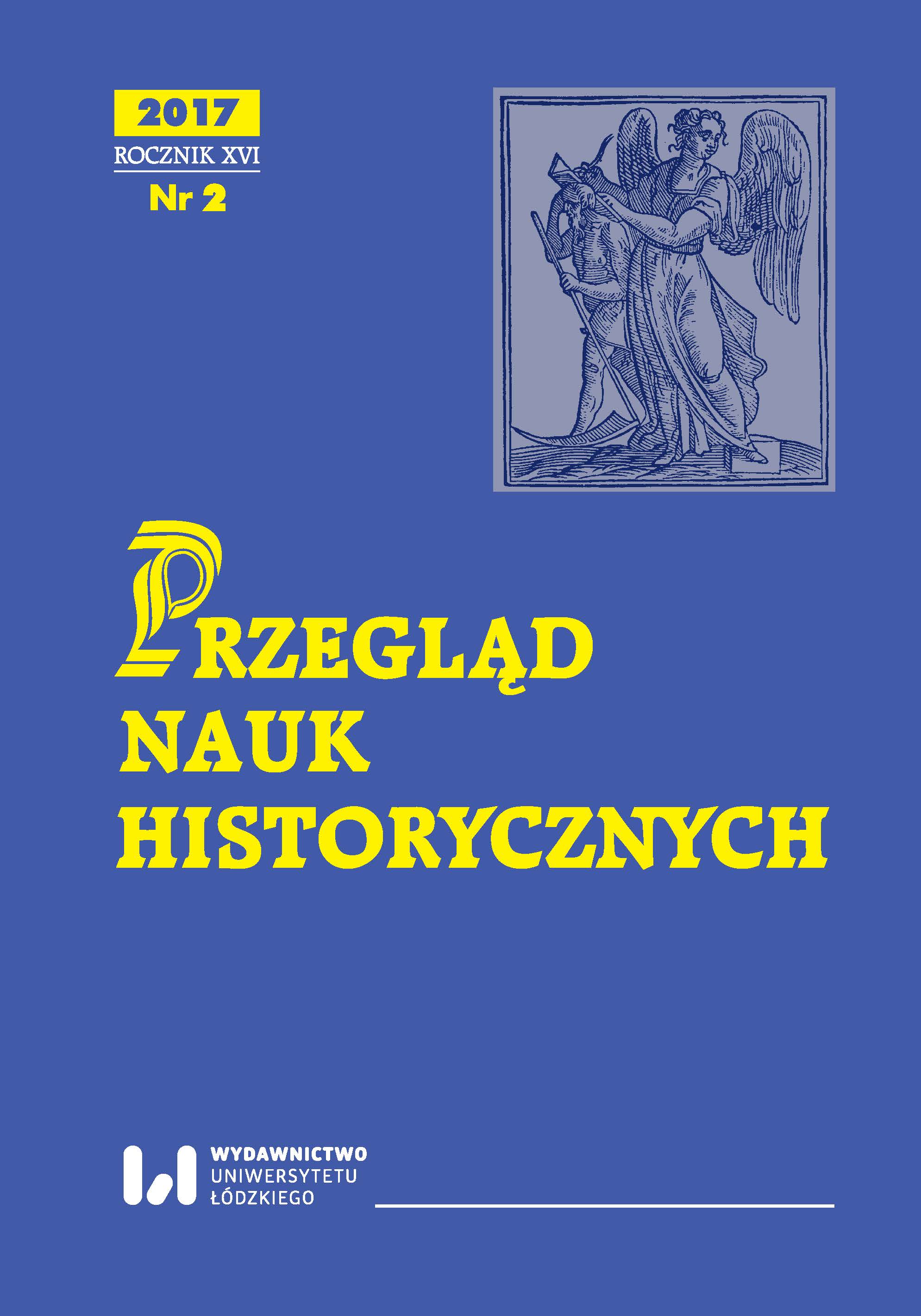
Austria, Hungary, Czechoslovakia, Romania, the Kingdom of SCS and Poland are the countries referred to as successor states of the Habsburg Monarchy since they were established out of its ruins. This article focuses on how meaningful these Central European states were to Polish diplomacy in 1918–1920, i.e. the period which was decisive in the creation of their independent existence. The aim of the article is to answer the question of how the gradual breakup of the unitary Austria-Hungary in 1918 was perceived by the Polish political elites. It will also examine what stance the government of the independent Polish state adopted towards the new countries that were being formed after the dissolution of the Habsburg Monarchy. All the states which were fully or partially composed of the former Austro-Hungarian territories are considered with the exception of Italy which was already recognised as one of the most important European powers and after its annexation of the Habsburg lands on the Adriatic Sea was even more of a power. The article will also explore whether the emerging countries played any role in the development of Polish foreign policy and if so, how significant this role was. A similar question can be asked in the case of the entire territory of the Danube Region. After the First World War, its political and economic unity was shattered, which could have been used by the nascent Poland while dealing with its weaker partners. // Austria, Węgry, Czechosłowacja, Rumunia i Królestwo SHS, a także Polska to państwa nazywane krajami sukcesyjnymi monarchii habsburskiej, ponieważ powstały na jej gruzach. Artykuł koncentruje się na znaczeniu tych środkowoeuropejskich państw w dyplomacji polskiej w latach 1918–1920, czyli w okresie decydującym dla ich niepodległego bytu. Celem artykułu jest odpowiedź na pytanie o to, jak postępujący rozpad Austro-Węgier w roku 1918 był postrzegany przez polskie elity polityczne. W następnej kolejności istotne jest pytanie, jakie było stanowisko rządu niepodległego państwa polskiego wobec państwowości tworzących się po rozpadzie monarchii Habsburgów. Pod uwagę wzięte zostały wszystkie kraje, które w całości lub w znaczącej części zagarnęły tereny austro-węgierskie. Pośród nich wyjątkiem są Włochy. Rzym zaanektował również znaczące tereny habsburskie nad Adriatykiem, ale już wcześniej był uznawany za jedną z ważniejszych stolic europejskich i nowe nabytki jedynie zwiększyły jego potencjał. Istotne jest również zauważenie, czy omawiane państwa odgrywały jakąś rolę w polskiej polityce zagranicznej, a jeśli tak, to jak znaczącą. Podobne pytanie dotyczy całego terytorium Europy naddunajskiej. Jego polityczna i ekonomiczna jedność została zerwana po I wojnie światowej, co mogła wykorzystać rodząca się Rzeczpospolita, mając do czynienia ze słabszymi od siebie potencjalnie partnerami.
More...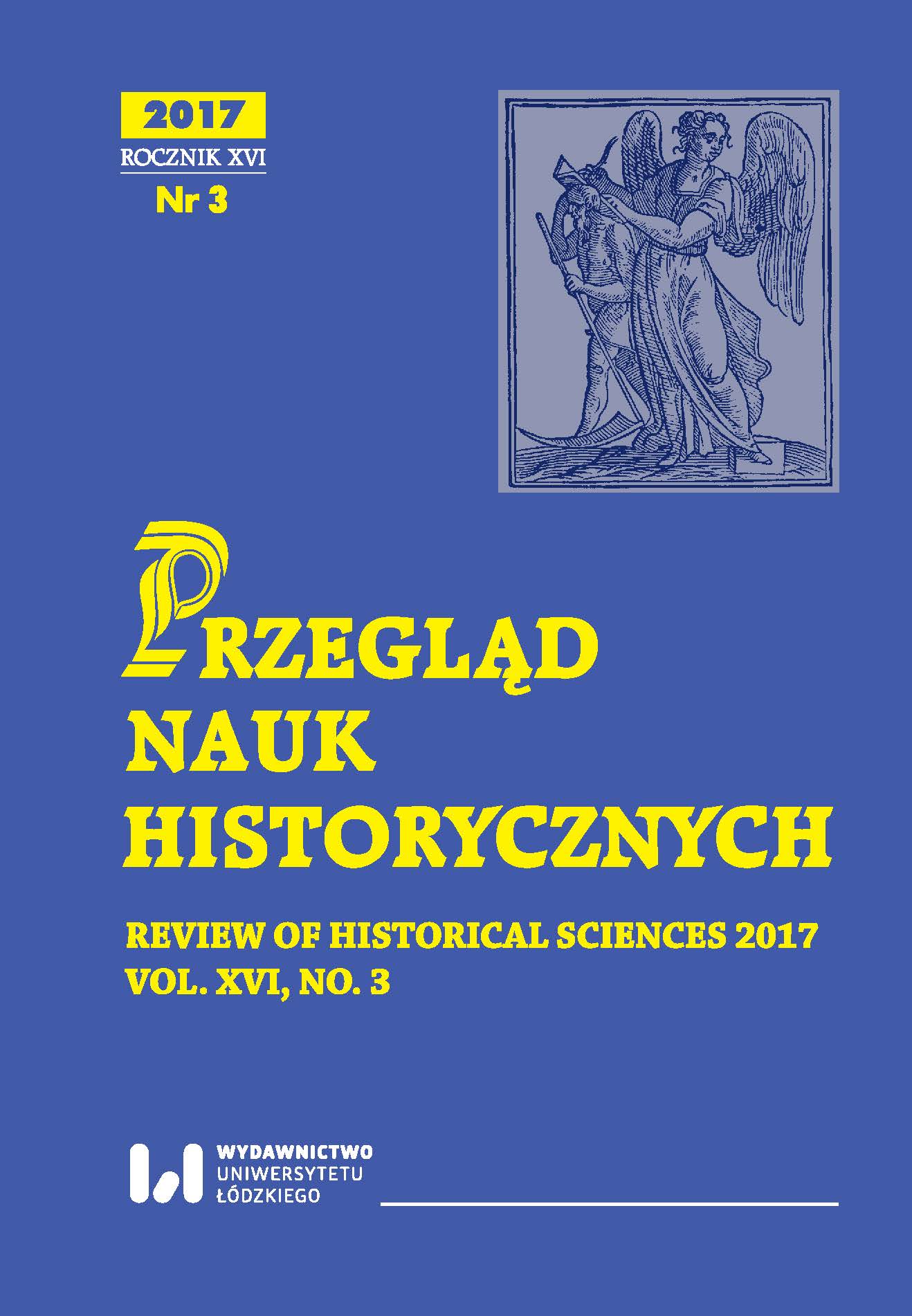
Austria, Hungary, Czechoslovakia, Romania, the Kingdom of SCS and Poland are the countries referred to as successor states of the Habsburg Monarchy since they were established out of its ruins. This article focuses on how meaningful these Central European states were to Polish diplomacy in 1918–1920, i.e. the period which was decisive in the creation of their independent existence. The aim of the article is to answer the question of how the gradual breakup of the unitary Austria-Hungary in 1918 was perceived by the Polish political elites. It will also examine what stance the government of the independent Polish state adopted towards the new countries that were being formed after the dissolution of the Habsburg Monarchy. All the states which were fully or partially composed of the former Austro-Hungarian territories are considered with the exception of Italy which was already recognised as one of the most important European powers and after its annexation of the Habsburg lands on the Adriatic Sea was even more of a power. The article will also explore whether the emerging countries played any role in the development of Polish foreign policy and if so, how significant this role was. A similar question can be asked in the case of the entire territory of the Danube Region. After the First World War, its political and economic unity was shattered, which could have been used by the nascent Poland while dealing with its weaker partners. // Austria, Węgry, Czechosłowacja, Rumunia i Królestwo SHS, a także Polska to państwa nazywane krajami sukcesyjnymi monarchii habsburskiej, ponieważ powstały na jej gruzach. Artykuł koncentruje się na znaczeniu tych środkowoeuropejskich państw w dyplomacji polskiej w latach 1918–1920, czyli w okresie decydującym dla ich niepodległego bytu. Celem artykułu jest odpowiedź na pytanie o to, jak postępujący rozpad Austro-Węgier w roku 1918 był postrzegany przez polskie elity polityczne. W następnej kolejności istotne jest pytanie, jakie było stanowisko rządu niepodległego państwa polskiego wobec państwowości tworzących się po rozpadzie monarchii Habsburgów. Pod uwagę wzięte zostały wszystkie kraje, które w całości lub w znaczącej części zagarnęły tereny austro-węgierskie. Pośród nich wyjątkiem są Włochy. Rzym zaanektował również znaczące tereny habsburskie nad Adriatykiem, ale już wcześniej był uznawany za jedną z ważniejszych stolic europejskich i nowe nabytki jedynie zwiększyły jego potencjał. Istotne jest również zauważenie, czy omawiane państwa odgrywały jakąś rolę w polskiej polityce zagranicznej, a jeśli tak, to jak znaczącą. Podobne pytanie dotyczy całego terytorium Europy naddunajskiej. Jego polityczna i ekonomiczna jedność została zerwana po I wojnie światowej, co mogła wykorzystać rodząca się Rzeczpospolita, mając do czynienia ze słabszymi od siebie potencjalnie partnerami.
More...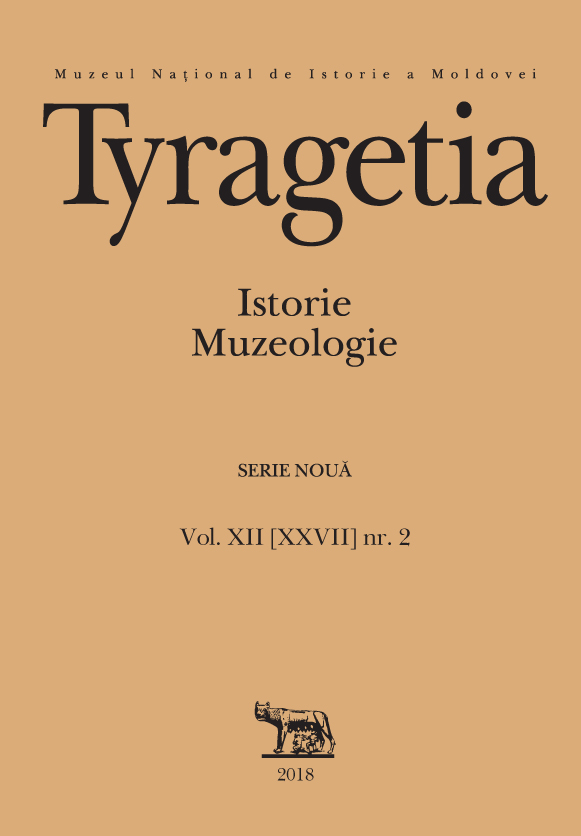
A la bibliothèque Wroblewski de l’académie des sciences de Lituanie sont conservées des lettres de la correspondance diplomatique du chevalier Charles Gravier de Vergennes, ambassadeur de France en Turquie de 1755 à 1769, avec le comte Jan Klemens Branicki, grand-hetman de Pologne, et les princes de Moldavie Scarlat Ghika, Jean-Théodore Callimachi et Grégoire Callimachi, pour les années s’étendant de 1757 à 1763. Ces lettres, inexploitées jusqu’à aujourd’hui, éclairent sous un jour nouveau les relations diplomatiques entre la Principauté de Moldavie (faisant alors partie de l’empire ottoman) et la République des Deux Nations (ou Pologne-Lituanie). Elles témoignent des différends qui pouvaient naître entre la Principauté et la République, de la façon dont les hospodars défendaient les intérêts de leurs ressortissants, ainsi que de l’assistance mutuelle que ces deux Etats pouvaient se prêter. La médiation du hospodar Grégoire Callimachi (assisté de son homme de confiance, monsieur de Mille), qui permit d’eviter une guerre entre Polonais et Tartares suite au litige survenu en 1761 entre le prince polonais Stanisław Lubomirski et le khan des Tartares Kırım Giray, en est un parfait exemple. L’article aborde ainsi les thèmes suivants : la collaboration transfrontalière entre la Principauté de Moldavie et la République des Deux Nations (I), les plaintes des marchands moldaves à l’encontre des autorités polonaises (II), la médiation de la Moldavie dans le litige opposant le prince polonais Stanisław Lubomirski au khan des Tartares Kırım Giray (1760-1763) (III). Nous espérons que cette étude apportera un regard nouveau sur la nature des relations entre la République des Deux Nations et la Principauté de Moldavie au XVIIIe siècle.
More...
After the Crimean War, the great powers drew attention to the issue of Bessarabia. According to the Paris Peace Treaty, signed on March 30, 1856, Southern Bessarabia was to be ceded to the Principality of Moldavia. Obviously, Russia could not accept the territorial changes that blocked its access to the Danube. Great Britain was Russia’s most irreconcilable opponent. France supported Russia in the matter of preserving Southern Bessarabia on the grounds that Bolgrad was the administrative center of the Bulgarian colonies in Bessarabia. But Britain took a tough stance, not allowing any violations of the treaty by Russia. British diplomacy insisted on the transfer of South Bessarabia to the Principality of Moldavia without granting Russia any territorial compensation. In the end, the issue of Southern Bessarabia was settled at the Paris Conference in January 1857.
More...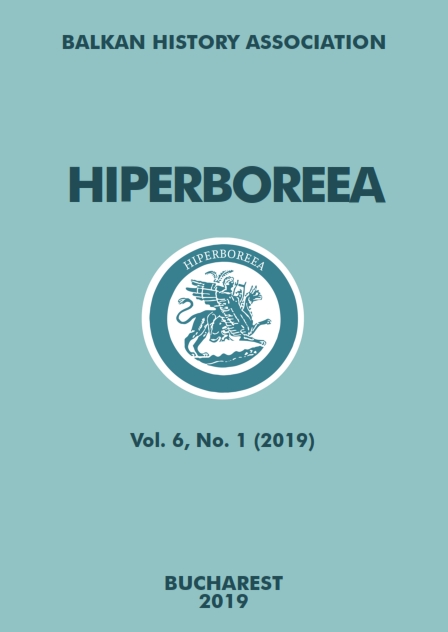
Emotions shouldn`t be neglected, but rather taken seriously in order to understand better the complexity of political, and socio-cultural processes that they have generated. The study of emotions in the field of diplomacy is particularly promising, but requires precise definition of the term, explanation of the methodological approach and qualifications concerning the research possibilities that depend upon the nature of the archival sources. The goal of this article is to analyze how words used to signify emotions, which could be signified as negative, shaped practical decisions within certain socio-political and cultural contexts; in other words to demonstrate an active role of emotions in shaping and conducting practical diplomatic decisions. The study aims to underpin the reciprocal relations between emotions and actions illustrated by two case studies from the late medieval Ragusan history. The sources of an interest are preserved in the State archive in Dubrovnik, in the archival seria Lettere di Levante, which, among others, contains the instructions written by the city authorities to their envoys. Despite the fact that the instructions were a product of a long and sober-minded discussions, and therefore they aren`t usually abundant with words used to express certain emotions in them, places where those expressions appear are quite significant and can tell us more about how emotions were used as a tool of cognitive processes.
More...
This article aims to analyse the activity of Romanian Consulates in two Scandinavian countries, Denmark and Norway, with particular focus on the first decades of the post-war period. Thus, the objective of this paper is to identify the main problems encountered by Romanian Consulates in Copenhagen and Oslo, as well as the solutions found to overcome them. The article is based on the analysis of the work plans and the annual reports preserved in The Diplomatic Archives of the Ministry of Foreign Affairs in Romania on the activity of the consular offices, both during the rule of Gheorghe Gheorghiu Dej, as well as at the beginning of Ceausescu’s rule. The openness of the Romanian authorities after 1965 towards the West offers new perspectives for the analysis of the Romanian consular services in the two Scandinavian countries, which can anticipate the evolution of the Romanian consular diplomacy, its difficulties as well as its achievements.
More...
Yugoslavia’s political disassociation from the Soviet Union in 1948 led to its economy being in an extremely difficult position. This further encouraged Yugoslav officials to normalize trade relations with the United States, given that deliveries from Eastern Europe and the Soviet Union could not satisfy the needs of the very ambitious Five-Year Plan. The paper is devoted to an analysis of how, from 1948 to 1952, the US political establishment influenced Yugoslavia’s greater political accountability and openness by providing economic aid, and in turn by being willing to persist in aiding its “communist ally” despite the opposition of Yugoslav emigrants, whose activities were funded simultaneously through the work of the National Committee for a Free Europe.
More...
The aim of this paper is to review once more the evidence for the alleged co-regency of Gonatas and Demetrios II, as well as the interpretations offered by modern historians. While it is accepted that, considering all the evidence, the theories of both R. M. Errington and E. Grzybek are untenable, it is maintained that contrary to the opinion of a number of historians, the question is still far from settled. The contradictions in the sources remain unresolved, and most of the offered explanations are unconvincing or at the very least hypothetical, which is why the firm stance on the issue taken by some researchers (whether for or against a co-regency) seems unfounded. Considering the scarcity and the contradicting nature of the available evidence, a definitive solution of the issue remains impossible until a new piece of information presents itself.
More...
According to the Imperial Firman of mid-19th century, „St.Nikola“ church in Kumanovo belonged to the Patriarchate. Such situation remained until establishment of the Exarchate when first problems related to the right to use the Church started. Intolerance between the Patriarchate worshippers on the one side and Exarchate worshippers on the other side increased with each year elapsed. Patriarchate and Exarchate worshippers in line with the order issued by Ottoman authorities maintained the worships in the Church by defined order, i.e. (1:1). However, by the beginning of 1898 intolerance between both sides reached boiling point. Conflicts and huge unrests were expected in the town at any time. Patriarchate worshippers, who had to obey the new decision of the authorities related to worships in the Church under a new defined order (2:1) were dissatisfied. Exarchate worshippers, who were in majority, obtained double right to use the church compared to the Patriarchate worshippers in Kumanovo. This resulted in deterioration of the relationship between the Governments of the Kingdom of Serbia and Principality of Bulgaria. Diplomats of both countries were also engaged. Bulgarian diplomacy had an advantage since its ecclesiastical organization was recognized within the Ottoman Empire. Serbian diplomacy relying on experienced diplomats in Belgrade and Constantinople failed to give up the right to „St. Nikola“ Church. Behind this mutual diplomatic struggle for the ownership right of a church in a small town in Ottoman Macedonia in fact the desire to realize the propaganda by two neighbouring countries was hidden. The citizens of Kumanovo were real victims, who had to choose the “best side” for them.
More...
The dread from the Great War planted the desire to millions of people that peace that will be decided upon its end to be everlasting and right. But even at the Peace Conference in Paris, the prevailing political practice of the winner’s inalienable right over the gaining of territories and the imposition of severe peace conditions through the secret diplomacy and the compensation policy continued to prevail. And on the basis of these principles, the Peace Conference of Paris also begins working. SKS’s Kingdom for the first time in this conference begins its political life in the international arena. With this occasion, it presents its political attitudes and aspirations, being imposed as an important factor in subsequent diplomatic and international events. In this context, the paper in question treats and analyzes the views of the delegation of the Kingdom of SKS in this conference, regarding the Albanian and Adriatic issues. Based on Yugoslav documents taken from the Yugoslav Archives in Belgrade, the paper also deals with Yugoslav claims that appear through three memoranda sent to the Conference of Paris. Our treatment will include the disagreements between it’s members of this delegation about their positions in relation to Albania and other parts of Dalmatia. The paper concludes with information of the decision of the Belgrade government to stop engaging the members of the Yugoslav delegation at this conference.
More...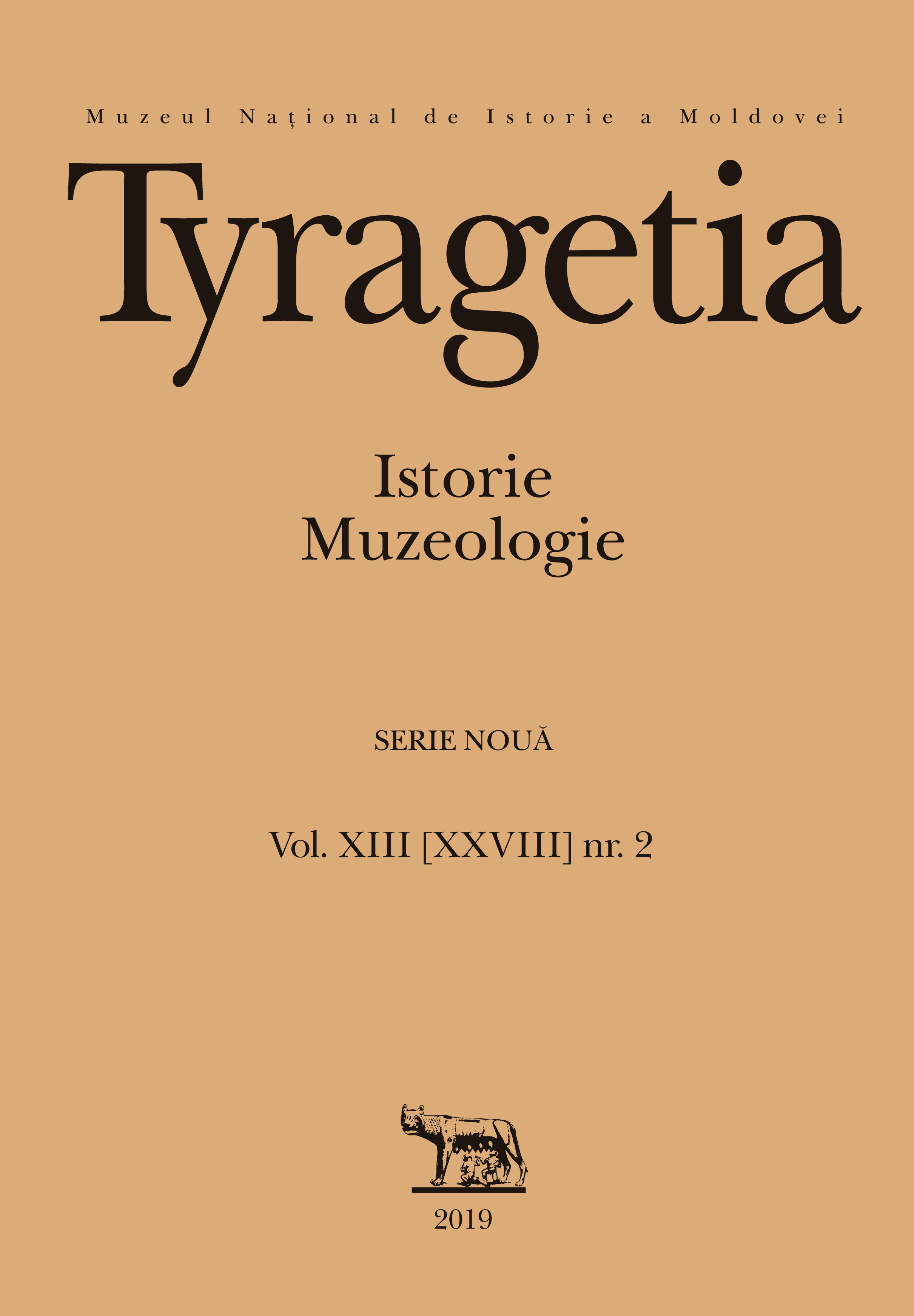
This article, highlighting the unknown pages of the biography of one of the Moldavian rulers of the 17th - early 18th century, Constantin Cantemir, is based on numerous archival documents, which are for the first time introduced into scientific circulation. Particular attention is paid to his participation in the Russian-Turkish war of 1735-1739 and his role in the formation of the Moldavian Corps of the Russian army. Attached to the article are documentary sources.
More...
In March 1921, a Polish-Romanian alliance was established which was to constitute a safeguard against the threat of Soviet Russia. In the course of negotiations Polish diplomacy presented a desideratum that the Romanian government would pay to Polish citizens compensation for their estates lost in Bessarabia as a result of implementing the agrarian reform in Romania. For tactical reasons, Warsaw did not adopt similar procedures with regard to the properties lost by Poles in Bukovina and Transylvania. A compromise on the compensation Bessarabia was not made, despite attempts, during the alliance negotiations or subsequent months and years, even though in 1926 Poland made the extension of the alliance with Romania dependent on settling this matter. Bucharest, however, effectively resisted the pressure and the settlement, not fully satisfying Warsaw, took place only in 1930.The finalizing issue of the compensation in Bessarabia was accompanied by the matter of obtaining indemnification from Romanians for land property lost by Polish citizens in Bukovina and Transylvania. The mediation of the Republic of Poland in the negotiations for the Romanian-Soviet non-aggression pact facilitated Polish-Romanian talks regarding the reparations. In January 1932, an oral agreement between the delegates of both countries was reached. However, under a trivial pretext, the Romanians torpedoed it, and all the attempts to resume the negotiations made by Poles failed. This attitude was the result of the re-evaluation in Romanian foreign policy which, when directed by Minister Nicolae Titulescu, aimed at the loosening of the alliance with Poland. The situation seemed to change in 1937, when the relationship between the two countries strengthened again. However, the talks held at the time regarding the compensation proved to be unsuccessful. This was resulted not only from the Romanian reluctance to make payments but also from the hard stance of Warsaw in the matter of compensation for Romanian citizens whose property was nationalized in Poland.
More...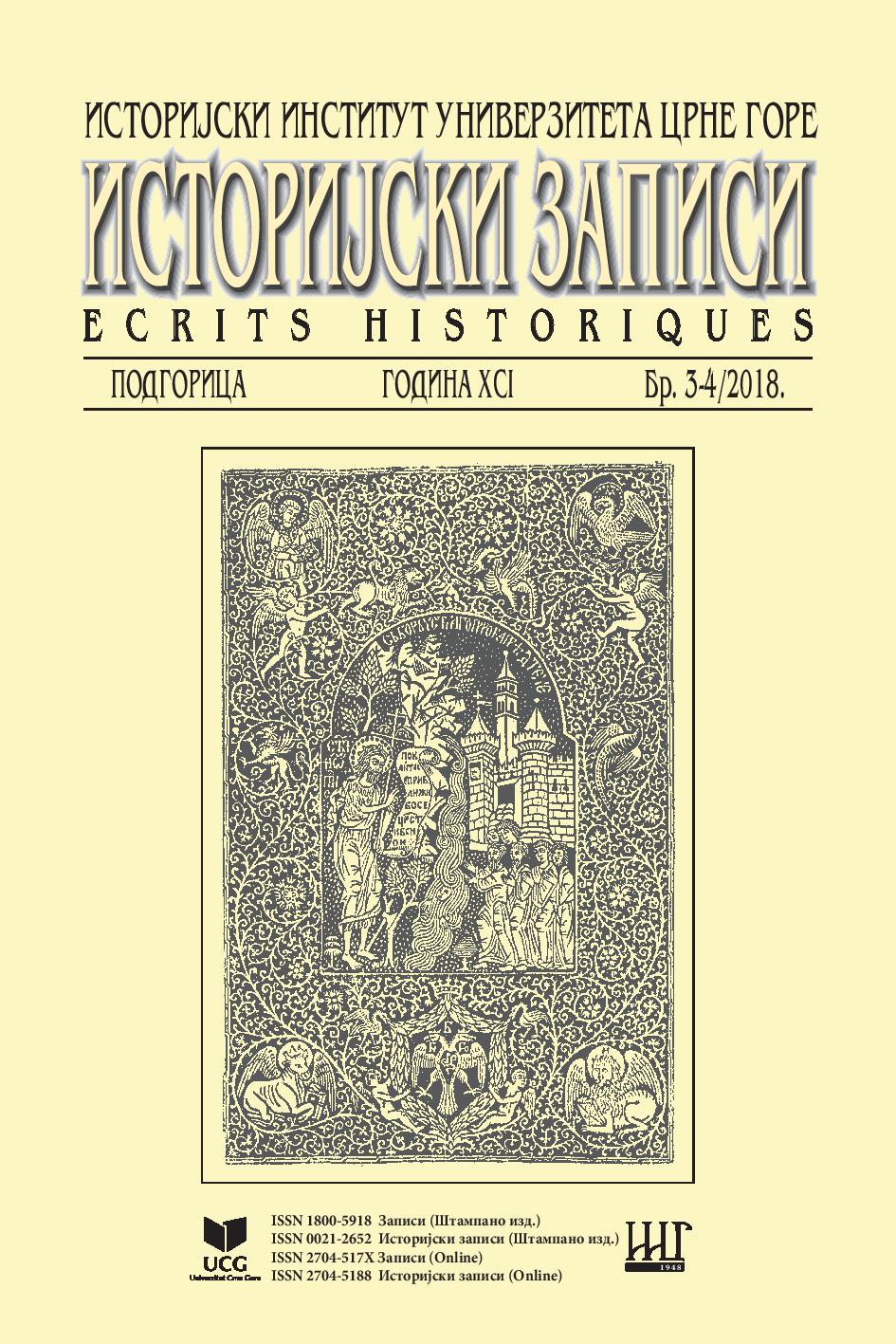

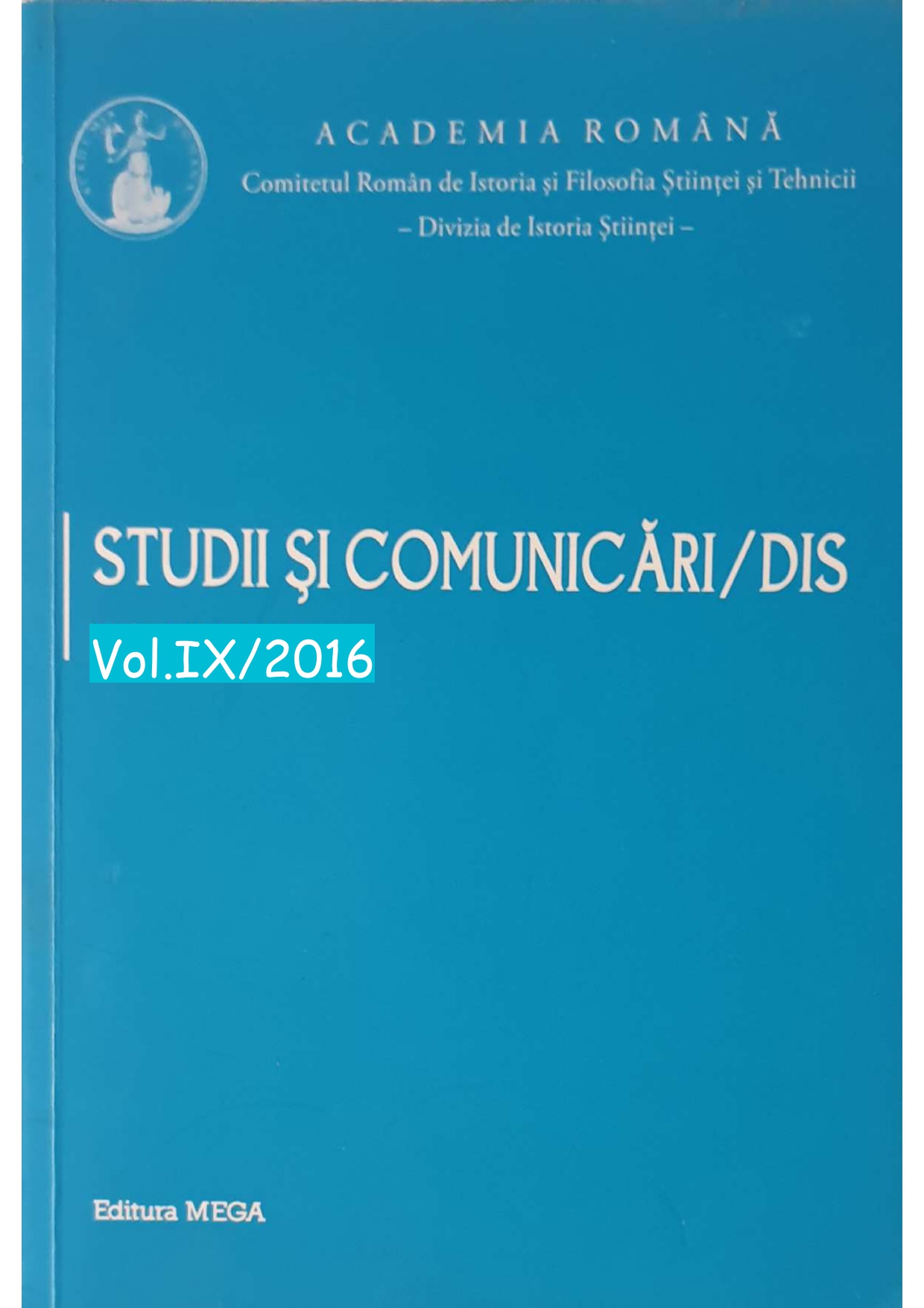
The mission of the Romanian Historical Commis sion, passed by the Parliament in 1910, at the initiative of Spiru Haret, was to provide scholarly editions of all domestic and for eign factual written accounts concerning the Romanian history and literature of the fourteenth eighteenth centuries. The new institution resembled the „Monumenta Germaniae Historica” and Russian Archeographic Commission. The appearance of the Historical Commission revealed the tendency of the govern ment, to increase the number of the centres of academic research, due to the great number of specialists in history and philology capable to develop new directions in the historical research and writing.
More...
During the 188 years of its existence (the first mod ern Romanian Army regiments were established in 1828 by Pavel Kiselev), the Romanian Army had a series of wars – 1877–1878, 1912–1913, 1916–1919, 1941–1945 – Romanian soldiers distin guished by bravery and great sacrifices of blood, the feats being presented thoroughly in numerous studies, war memories, vari ous literary works. On the other hand – less by military historians and more by the civilian ones – it has been revealed that in all cases, although expected to war and military confrontation, the Romanian army was precarious in its preparation, equipment and fighting, Romanian soldiers were recovering during hostili ties and equipping by the courtesy of allies or on behalf of the enemy. Another feature, also highlighted extensively, is that among the NCOs and officers the most supreme sacrifices were offered by reservists and less by career officers, in most cases they have shunned by implicit and explicit presence on the battlefield, acting more behind it and at long distance of battles. For these reasons many writers (former retired officers) and civilian histo rians have criticized the behavior of the officer corps and staffs who often treated with indifference and superficiality the situa tions imposed by the preparation for battle or war. Here we do not intend to resume what has already been said, but to do an X ray on military concepts of the Romanian Army man agement and officer corps during wartime, especially in the First World War, with some conclusions about the current state of the Romanian Army, which is in a tense political military interna tional situation.
More...
It must be said from the beginning that the idea of uniting all Romaninans from all Romanian – speaking prince doms, is not at all a new idea. This idea evidently appears since the firstRomanian writings with an historically character. Pro gressively, this idea begins to crystallize in the conscience of Romanians especially of the Romanian intellectuality, leading to the formation of a genuine current in culture as, for example Ardelean – region – School. Of course, we must also mention the remarkable role played by the intellectuality, and the Romanian „intelligence” in general, in the first Union of 1859, the same intellectuality who, studying in Paris during the first half of the nineteenth century, managed to partake of France’s generous ideas. Throughout these ideas, the one which held the place of honor was the idea of national conscience. However, the Union of the Princedoms is not perceived as an accomplishment. The ideal was still far away, and the „national emptiness” was fully accused, especially by the young who stud ied in the West and who, upon their return, do not hesitate to create institutional forms meant to lead to the accomplishment of the secular dream. The beginning of the twentieth century finds the Romanian soci ety in an intellectually effervescent state regarding the centuries – old ideal of the nation.
More...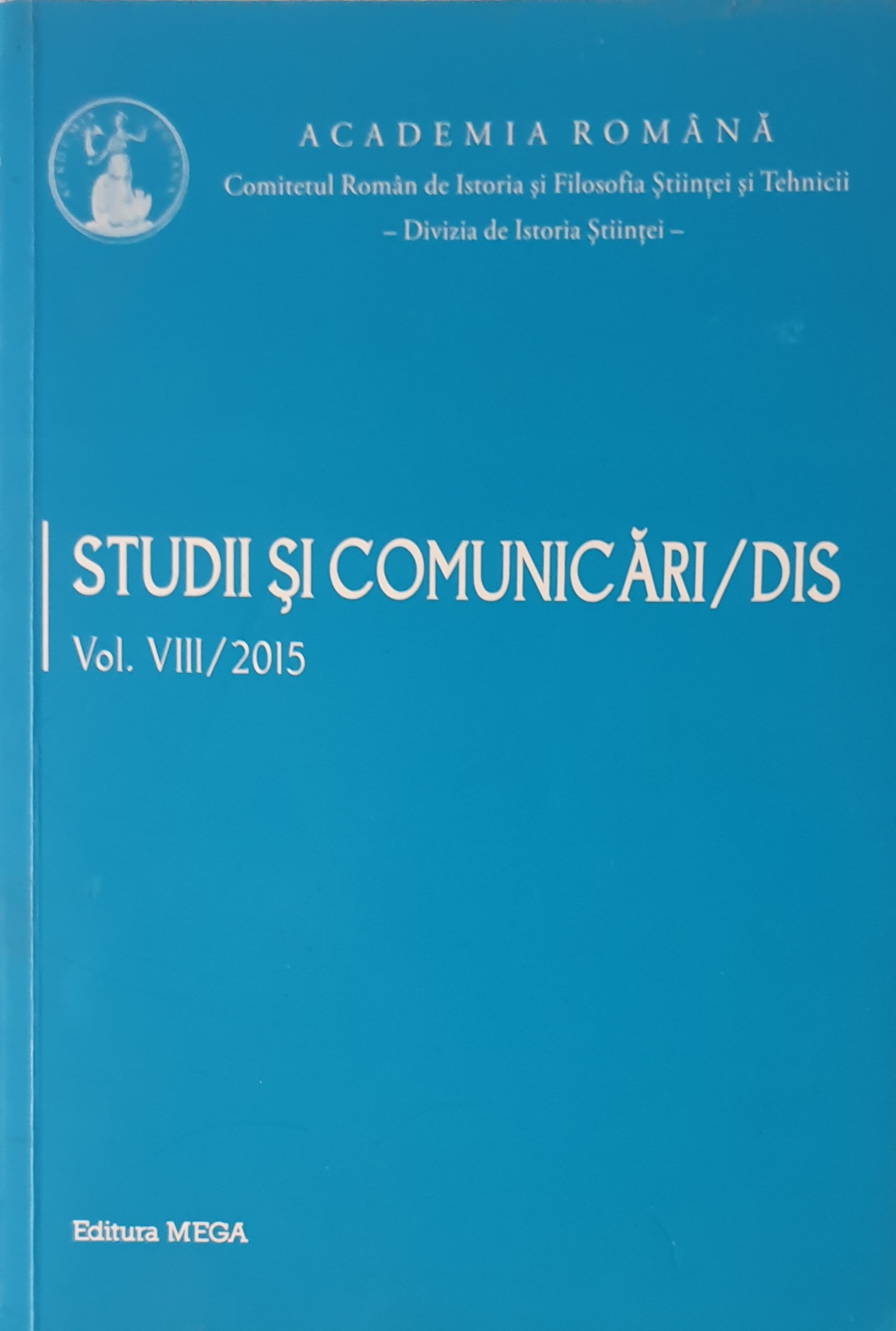
Alexandru Ciucă studied between 1896–1901 at the School of Veterinary Medicine in Bucharest, where he remarked himself, before delivering his inaugural graduation thesis „Trial serotherapy of the glanders”. His scientific training was completed in France, from 1910 to 1914, while working under the direction of Pasteur disciples such as: Weinberg, Brumpt, Raillet. At the Pasteur Institute in Paris he worked with Roux and Mesnil. In Germany he worked in Berlin in 1914, under the personal direction of Östertag and Neuman from the University of Bonn. He then worked in England between 1927 and 1928, in the field of FMD, at the Lister Institute in London UK, which included original research, which later on became classics. The young Alexandru Ciucă had the subtle inspiration to be the first in the world to use the reaction of the complement fixa tion method (CFT – complement fixation test) for the purpose of differentiation in terms of these antigenic types of virus and Sera collected from different groups of guinea pigs inoculated through experimental infection or repeated vaccination with the three antigenic types of known viruses. In 1928, Al. Ciucă suc ceeded to make the typization of foot and mouth disease virus by the reaction of complement fixation (Bordet and Gengou), data published in „The Journal of Hygiene”, p. 325–338, in London, 08 March, 1929. He thus contributed to the identification of foot and mouth disease virus serotype as well as to the development of corresponding measures for foot and mouth disease prophylaxis. In the report entitled „Development of veterinary science dur ing the last 100 years and men that illustrated the progress in this field” (Le developpement de la Science Veterinaire au cours des dernieres cent annees, XVII Congrès mondial vétérinaire, Hannover, aout, 1963), Professor Alexandru Ciucă was included in the Group of 30 prestigious names (R. Vuillaume). After recall ing that „In Romania, Alexandru Ciucă gave us a method of treatment in dourine, which effectively resulted in the elimina tion of this disease in the whole of Europe” the report shows that Professor Ciucă published in Bull. of Int. Epiz. No. 7, pp. 168– 193, in 1933, a scientific paper entitled „The dourine”, in which he presented the symptoms of the disease and the methods of reducing the incidence of dourine in horses in Romania through appropriate treatments with subtoxic doses of neosalvarsam, results cited and commented in the Treaty of infectious diseases of Manninger and Mócsy, 1959.
More...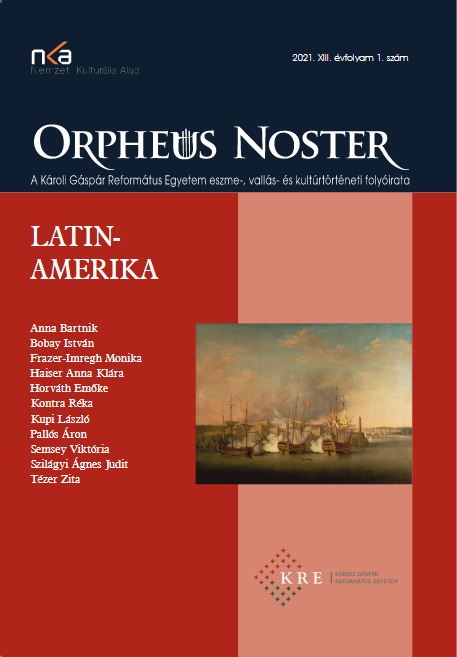
Horváth Emőke, Lehoczki Bernadett (szerk.): Diplomácia és nemzetközi kapcsolatok: Amerika a XIX–XXI. században. Tanulmánykötet. L’Harmattan, 2019. 378 p.
More...